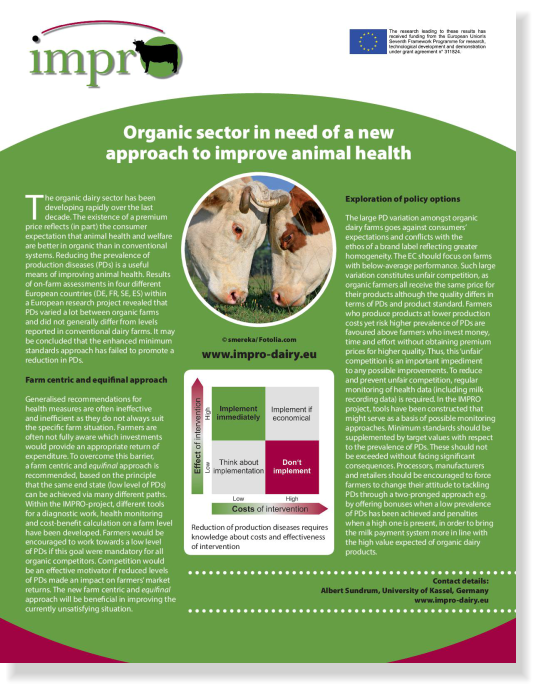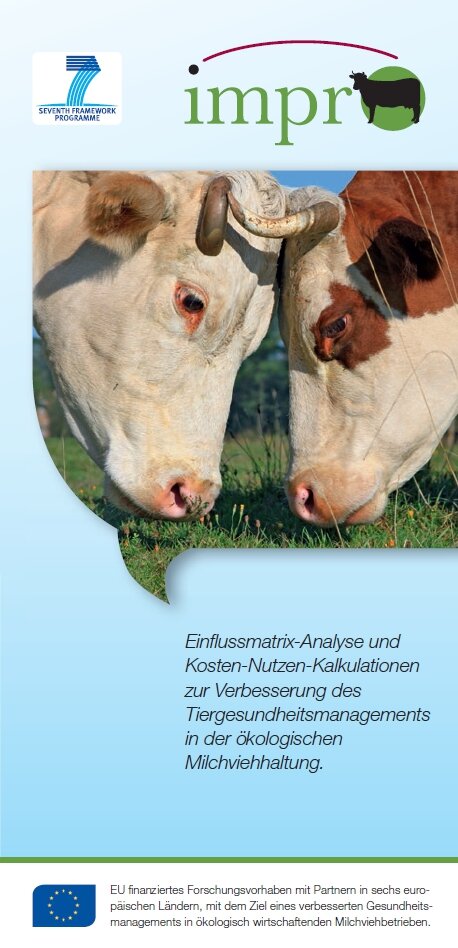WP9: Research on the use of alternative remedies in livestock farming
WP9: Research on the use of alternative remedies in livestock farming
Involved partners: UKS, SLU, ONIRIS, WU, IRTA
Remedies are means to achieve a certain aim. In the case of homeopathic and phytotherapeutic remedies, these remedies are not only used with the purpose to aid recovery of diseased farm animals but often intend additional purposes, among others to avoid the use of chemically synthesized products, to reduce the use of antibiotics and therewith reducing the risks of residues and the risks for the development of antibiotic resistance.
However taking the perspective of the farm animals and their well-being into account, the considerations with respect to additional purposes are only justified when the use of alternative remedies can be expected to as effective as the allopathic medication. To provide evidence for the effectiveness and appropriateness of alternative remedies is a crucial challenge. Both are depending on various influencing factors. These cannot be assessed adequately in single case studies and or be generalized from the results of research studies under standardized conditions. Among others, the therapeutic effectiveness of remedies depend on:
- Effectiveness of the remedy in relation to the specific disease,
- Quality of the remedy with respect to concentration and formulation of active ingredients,
- Valid diagnosis of the disease and estimations with respect to the prognosis,
- Selection of the appropriate remedy, the dosage of the remedy and the duration of therapy,
- Supportive and palliative measures,
- Removal of causative factors.
In addition to estimations about the effectiveness of alternative remedies, there is a need to assess the context and the surrounding conditions in which alternative remedies are used and to evaluate the preconditions and the control measures that should be put into force to ensure recovery of diseased animals in farm specific conditions and to prevent a prolonged suffering of farm animals due to ineffective treatments.
WP9 will combine literature research, questionnaires, workshops and simulation modelling to cover the wide range of topics involved and expertise required to achieve a secured state knowledge that enable valid statements concerning the possibilities to reduce the use of antibiotics by making use of alternative methods.
The role of alternative methods when striving for options to reduce the use of antibiotics in organic and conventional livestock farming (cattle, pig and poultry production) will be assessed by:
- Reviews on research projects in the field of homeopathy and phytotherapy,
- Investigations regarding the cooperation between research bodies,
- Workshops with proponents and detractors of alternative methods,
- Research on the preconditions and diagnostic procedure for the use of homeopathic and phytotherapeutic treatments according to the state of the art in pig and poultry production,
- Economic impacts of the use of homeopathic and phytotherapeutic treatments in conventional pig and poultry production,
- Summarizing report, conclusions and recommendations for assistance policy.











